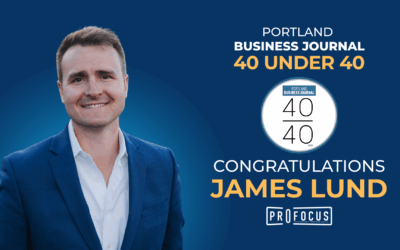I stumbled across a sort of “computer programmer manual” us computer programmers. It’s called “Soft Skills”, written by John Z. Sonmez.
It’s not a book on how to program code. But more how to self program us software developers to become better people.
As a software developer, one of your core marketable skills, is obviously your technical skills and knowledge.
It’s absolutely essential that as a developer, you keep your technical skills sharp. The reason being technology is always evolving, always changing.
I stopped buying most technical paperback books a long time ago … one, because they’re usually thick tomes that quickly take up lots of shelf space. And more importantly, they’re out of date as soon as they’re published.
If there’s a book about the AngularJS framework version 1.0, you can bet there’s a version 2.0 right around the corner (which is actually true). Version 2.0 happens to be radically different in nature than version 1.0 that as a developer, you’ll have to unlearn a lot of the original framework nuances and get your head wrapped around new concepts and specifics around the 2.0 version.
I end up purchasing technical books as e-books for my Kindle device.
It just goes to show technology moves at a breakneck pace. As a developer, it’s ESSENTIAL you keep your technical skills sharp. That means making sure you know the ins and outs of your core technical stack.
That is, if you’re a Java developer, you make sure you know the ins and outs of the Java programming language. The major Java APIs that you will use in your day to day coding activities. And any specific Java frameworks … such as Android for mobile device development. Or the Spring framework for RESTful API and web development, and so on.
Or if you’re a Microsoft programmer, knowing the ins and outs of the .NET Framework and the programming languages the framework supports such as C# or Visual Basic.
Even keeping up with your core technical skills isn’t enough.
You need to keep looking ahead and outside your core expertise to see what’s around the corner.
When I first started out in my software development career, I used Microsoft’s Visual Basic tool to code my applications.
And for awhile, Visual Basic was one of the flagship programming tools that Microsoft pushed. Visual C++ was the other.
And all was good until Microsoft introduce a radical new framework called .NET. It allowed developers to write applications in a variety of Microsoft supported languages such as Visual Basic, C# (a newly created Microsoft programming language introduced with .NET), and others.
.NET was a major paradigm shift for Microsoft. Getting on the .NET bandwagon was a very wise career choice for many Microsoft developers (including myself). It’s still thriving to this day, and the demand for .NET developers still seems insatiable … at least according to the flood of e-mails and voicemails from recruiters which constantly innudate my inbox, regarding new .NET developer opportunities.
Yet as much I have embraced .NET, I have to be careful not to assume .NET will always be around. There will always be something different coming around the corner.
Lately, Javascript is fast becoming the de facto programming language for web and mobile applications.
The MEAN stack, which is MongoDB, Express, AngularJS and NodeJS, is rapidly becoming one of the most popular frameworks for single page web application development.
It’s important as a developer, to at least be aware of new programming trends, new frameworks, new ways of doing development. The worst thing you want to have happen is staying “loyal” to any particular framework … nothing lasts forever, especially anything technology related.
The book I previously mentioned, “Soft Skills”, focuses on the other core area a developer should continually be cultivating and improving … pretty much all the non-technical skills a developer needs in order to succeed and thrive in your technical career.
The book logically begins by focusing on your career. A career is not just the current job and company you’re employed with. It also teases the idea and possibilities of quitting your current job and place of employment to start up your own business.
The book transitions into the importance of marketing yourself using social media accounts like LinkedIn, Twitter and Facebook, and the power of blogging, writing articles. Ultimately, it stresses the importance of marketing yourself as a brand name, much like big corporations who do their best to create brand name products like Coca-cola and Big Macs.
Other major sections of the book delve into the importance of learning, productivity, your financial health, and even the importance of keeping your body healthy.
If the book sounds like something out of a self help guide from Tony Robbins, you’re probably not far off.
Some developers may even balk at a book like this … if it’s not chock full of dry, technical information, it can’t be useful! After all, we’re left brained eggheads, right?
But thinking about my own personal career history spanning near 20 years, I can say without a doubt, I wish I had this kind of book to help guide me through my career. As the old saying goes, you only get one shot at life.
And that most of us usually learn things the HARD WAY through the school of “hard knocks”.
Learning things the hard way is painful.
Learning things from people who may have already gone through the school of hard knocks, can save you from the same mistakes, hardships and tribulations.
Most applications needs manuals to help people figure them out.
I can only speak for myself, but I really appreciate the “life manual” this book has provided. I heartily recommend this book to fellow software developers who are interested in learning how to enhance and develop good soft skills.




